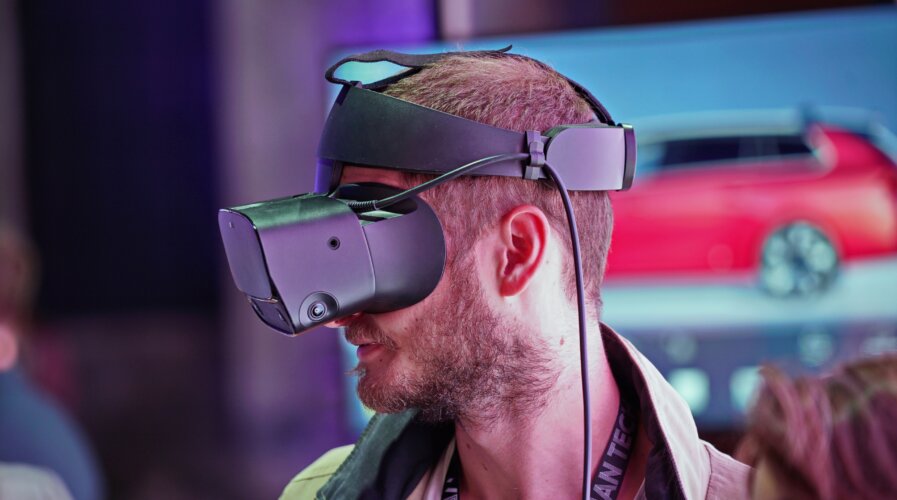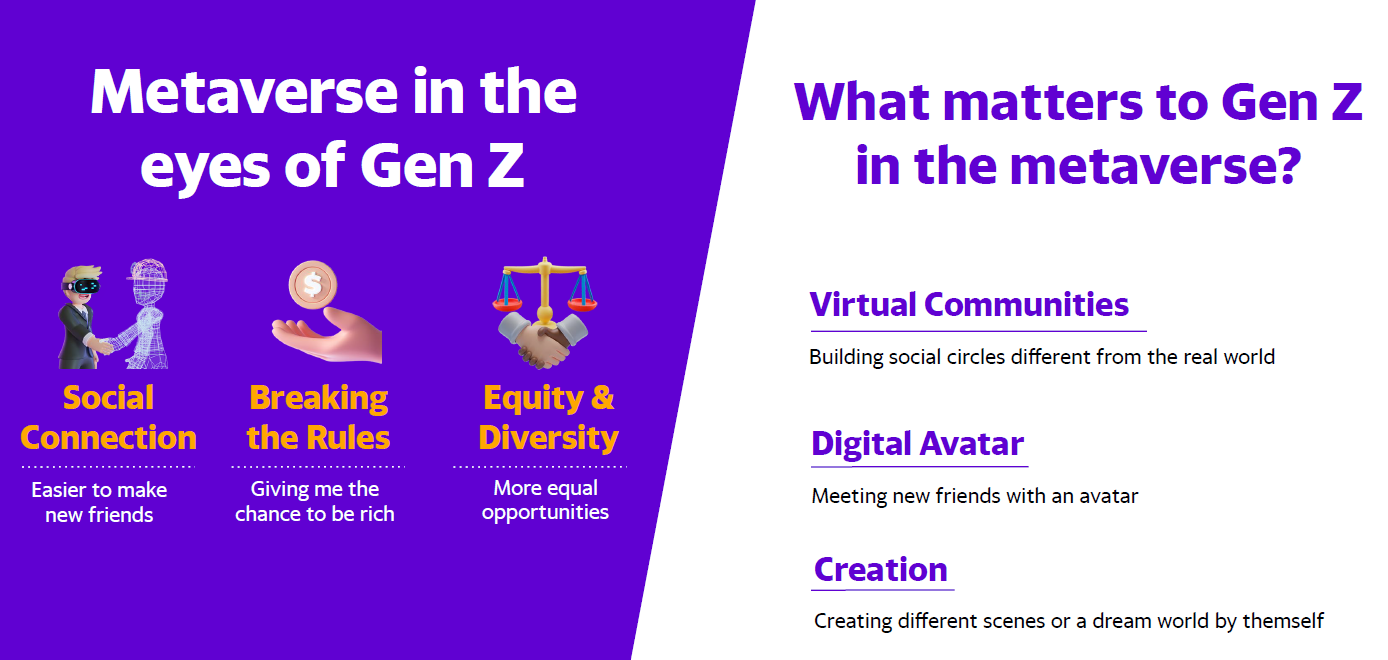
Who is the metaverse for? Gen Zs or millennials?
- Although the metaverse has generated considerable excitement, there is currently little information regarding consumer expectations.
- Gen Z and Millennials have varying attitudes towards digital avatars.
First off, let’s talk about the growing popularity of the metaverse and why brands must keep up with this trend to remain relevant. The metaverse is attractive for many reasons, including its ability to create virtual economies that enable people to acquire digital currency to purchase virtual property online.
By creating virtual stores inside various metaverse platforms, brands can take advantage of this opportunity, offering customers a customized experience and the ability to buy digital assets. Additionally, the space will collect substantial amounts of data that brands can analyze and act on immediately, making it essential to seize this opportunity.
In the coming year, brands need to be aware of metaverse trends, including digital twins automation, increasingly photorealistic avatars, fashion, extended realities, and virtual corporate environments. A new survey by Yahoo sheds light on how the metaverse will affect different generations. The study, which covered 15,000 respondents across six countries in APAC, found that 73% of APAC consumers are aware of the metaverse, with digital natives in APAC leading the way. APAC Millennials and Gen Z comprise the “Metaverse Generation,” with 66% looking forward to the metaverse.
However, the survey revealed surprising differences in how these groups view virtual social communities, avatars, immersive entertainment, and creative freedom. According to Zoe Cocker, Director of Innovation and Creative Studio at Yahoo, while there has been much excitement about the possibilities of the metaverse, there is still very little information available about consumer expectations.
“The report uncovers the heart of the metaverse for consumers by country. This hyperlocal level of detail and insights goes beyond wider trends you are seeing in the press, making them actionable for brands wanting to build in this space and create real value for divergent audiences,” said Zoe.
Gen Zs and millennials want distinctly different things
Gen Z is excited to form social connections in the metaverse and fulfill their personal goals while valuing equity and diversity. On the other hand, for Millennials, the space represents an opportunity to enhance and elevate experiences, create life-like interactions, diversify and enrich human connections.

Source – Yahoo
The differences between the two generations extend beyond their preferences for digital avatars. Gen Z and Millennials have varying attitudes towards digital avatars. Gen Z tends to create avatars that reflect their true appearance and express their individuality through styling their hair, makeup, apparel, and accessories. On the other hand, Millennials prefer avatars that are vastly different from their actual appearance, opting for extensive embellishments and enhancements.
The report reveals that digital assets are highly sought after by Millennials and Gen Z in APAC, with one-third of them embracing virtual collectibles. 31% of the Metaverse Generation in APAC have studied NFTs, and 9% have already purchased them. The types of NFTs that appeal to this generation include artworks, profile pictures, gaming goods, limited-edition cards, videos, and music pieces. Owning NFTs is more than just an investment; it can allow individuals to become part of a group or community.
The Singapore metaverse generation: early adopters, NFTs, and gaming
The survey revealed that the Singapore Metaverse Generation, consisting of Millennials and Gen Z, has a higher level of awareness and interest in the metaverse than the APAC average. Specifically, 79% are aware of the metaverse, compared to 73% of the APAC average, and 68% are looking forward to it, above the APAC average of 66%. Notably, Gen X and Baby Boomers in Singapore also demonstrate a higher likelihood of adoption, with 59% and 53% of them expressing interest in the metaverse, compared to the APAC average of 51% and 41%.
The Singapore Metaverse Generation has shown a strong interest in NFTs, ranking second in adoption only to Hong Kong. About 37% of them have interacted with NFTs, and 12% have purchased them, which surpasses the APAC average of 31% and 9%, respectively. Their preference for NFTs is mainly focused on artistic paintings, game items, limited edition cards, and virtual profile pictures/avatars. Moreover, they express interest in buying popular NFTs on social media, showcasing their status, acquiring exclusive rights or memberships, featuring recognizable intellectual property, or collaborating with renowned brands.
Gaming is also a fundamental component for the Singapore Metaverse Generation. Many Millennials and Gen Z in Singapore have explored virtual gaming and enjoyed open-world video games like Minecraft, Roblox, Sandbox, and Fortnite. These immersive games enable them to explore, personalize their spaces, and interact with others, and they aspire to have even more immersive gaming experiences in the metaverse.
READ MORE
- Ethical AI: The renewed importance of safeguarding data and customer privacy in Generative AI applications
- How Japan balances AI-driven opportunities with cybersecurity needs
- Deploying SASE: Benchmarking your approach
- Insurance everywhere all at once: the digital transformation of the APAC insurance industry
- Google parent Alphabet eyes HubSpot: A potential acquisition shaping the future of CRM


